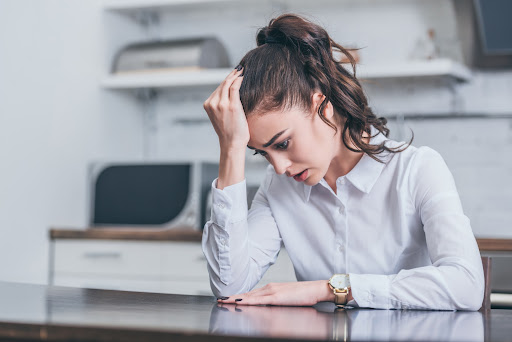
Teeth Whitening: How long does it last?
October 8, 2021
How Dentists Can Provide a Quick Smile Makeover
October 22, 2021Dental fear and anxiety can make a simple trip to the dentist’s office a nightmare. Researchers estimate that dental anxiety affects 36% of the population, with a further 12% suffering from extreme dental fear. Many patients and dentists wonder, “Why are people afraid of the dentist?” Here are three common causes of dental fear and anxiety:
- Fear of Losing Control
Did you turn off the stove? Did you double-check? Are you sure? If these inner thoughts sound familiar, you may have a fear of losing control. Concordia University researchers hypothesize that reducing the fear of losing control can reduce symptoms of anxiety-related disorders (including OCD, panic disorder, and generalized anxiety disorder.) Conversely, recognizing people’s negative beliefs of losing control may put them at risk for anxiety-related diseases.
To combat this fear of losing control, skilled dentists:
- Can apply lighter forms of sedation so that patients can still be in control of their actions.
- Educate their patients about every step before and during the dental appointment.
- Related Phobias and Anxieties
Phobias are categorized as extreme or irrational fears. Some phobias that may be associated with the dentist’s office include:
- Agoraphobia is the fear of entering crowded places, leaving one’s own home, or being in places that are difficult to escape. People who have agoraphobia may be triggered by the idea of going to a clinic outside of their homes. Also, they may believe that they do not have the option to leave at any point of the appointment.
- Claustrophobia is the fear of small spaces. The idea of a closed-off dentist office may trigger this fear.
- Mysophobia (Germophobia) is the fear of germs, dirt, or contamination. People with mysophobia may fixate on cleanliness and avoid places that are potentially contaminated. Thankfully, dentists sanitize and deep clean between patients.
- Vicarious Learning
Perpetuated myth and peer pressure from family members, friends, and the media, can lead to dental fear and anxiety. Three common myths include:
- “The dentist will judge me.” Some people are embarrassed by the status of their teeth and gums. They may fear that the dentist will make snide remarks if their gums are bleeding or have a cavity. However, dentists and dental hygienists are in their field to help patients improve their dental hygiene and health.
- “Dental procedures are painful.” In reality, pain is not a common experience when visiting the dentist’s office. Routine cleanings are non-invasive and do not irritate. If the dentist predicts uneasiness, they apply sedation and anesthesia to make the experience more comfortable.
- “I only need to see the dentist if my tooth hurts or is damaged.” Most dental care is preventative. Even though it’s wise to visit the dentist in case of toothaches, damage, and other dental emergencies, it’s wiser to visit the dentist before a problem develops.
Tackle Dental Fear and Anxiety Head-On
When patients allow dental fear and anxiety to rule their lives, it can be a mental barrier to attending dentist appointments. In consequence, avoiding the dentist’s office can lead to:
- Poor oral and systemic health
- Lower quality of life
- The need for more intensive treatment (if gum disease or cavities are left untreated)
Despite personal reasons for feeling uneasy at the dentist’s office, routine visits to the dentist help keep teeth and gums healthy. Dr. Abbey J. Lee eases dental fears and anxieties by:
- Creating a secure, sterile environment
- Patiently explaining to patients about their procedures
- Applying appropriate amounts of sedation
Schedule an appointment with us by calling 404-328-7177 or conveniently contacting us online.


